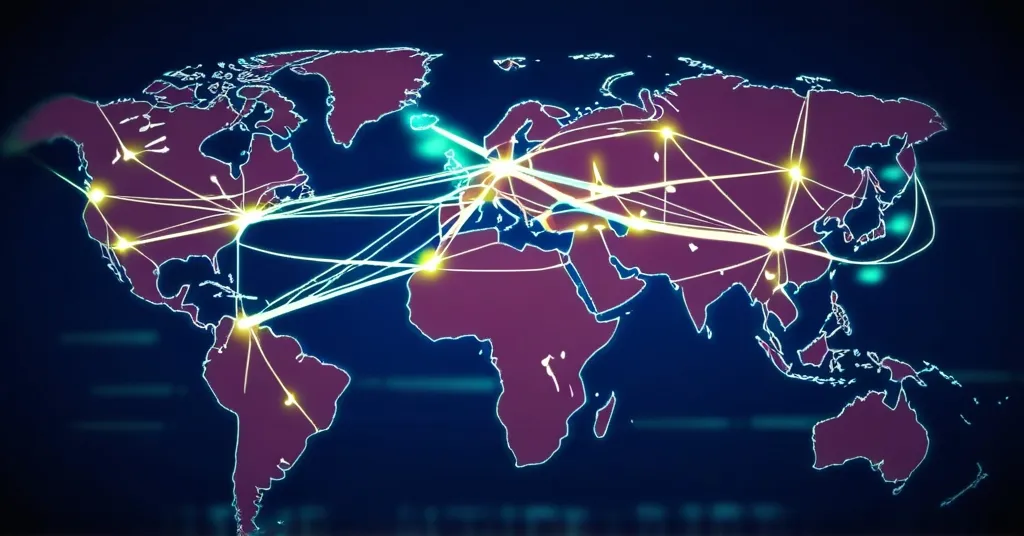Russia and Iran Use Crypto to Bypass Sanctions Amid Economic Isolation

Russia and Iran Leverage Crypto to Navigate Western Sanctions
In 2024, Russia and Iran increasingly utilized cryptocurrencies to sidestep Western sanctions, highlighting the adaptability of these nations amid economic isolation. A Chainalysis report revealed that sanctioned entities received $15.8 billion in crypto, representing 39% of illicit transactions, showcasing both the power and the peril of blockchain technology.
- Russia and Iran used crypto to bypass sanctions.
- DeFi and no-KYC exchanges were crucial tools.
- Russia deepened financial ties with BRICS, legalizing crypto activities.
- Enforcement actions disrupted Russian financial networks.
- Iran faced a surge in crypto outflows and global restrictions.
The geopolitical tensions driving these actions cannot be overlooked. Russia and Iran find themselves under stringent sanctions due to military actions and nuclear programs, respectively. These sanctions have pushed both nations to explore alternative financial systems, with cryptocurrencies emerging as a key lifeline.
Russia’s Strategic Financial Moves
Russia has taken bold steps to counter financial sanctions. In 2024, Russia strengthened its financial ties with Brazil, Russia, India, China, and South Africa (BRICS), pushing for trade settlements using stablecoins and central bank digital currencies (CBDCs). Russia also legalized cryptocurrency mining and international payments, aiming to maintain economic operations amidst global restrictions.
Decentralized Finance (DeFi), which refers to financial services on public blockchains, and no-KYC exchanges, platforms that do not require Know Your Customer verification, have become vital tools for Russia. These technologies allow for financial transactions without the oversight of traditional banking systems, which are often subject to Western sanctions.
However, these efforts faced significant resistance. Major enforcement actions in 2024 disrupted Russian financial networks. The US Treasury’s Office of Foreign Assets Control (OFAC) sanctioned entities like KB Vostok OOO, a drone manufacturer soliciting crypto donations, and Garantex, a crypto exchange linked to illicit activities. German authorities seized 47 Russian no-KYC exchanges, while Cryptex and PM2BTC faced sanctions for laundering billions in illicit transactions. The UK’s National Crime Agency dismantled a multi-billion-dollar Russian-speaking money laundering network, arresting 84 individuals and seizing over €20 million.
Iran’s Crypto Surge
Iran, facing severe financial isolation, also turned to cryptocurrencies. With the Iranian rial reaching record lows, citizens increasingly viewed crypto as a financial lifeline, using it to protect assets and facilitate international transactions. Crypto outflows from Iran surged by 70% in 2024, totaling $4.18 billion.
Yet, global exchanges reduced interactions with Iranian entities by 23% between 2022 and 2024 due to compliance pressures. The situation escalated when Iranian authorities abruptly halted withdrawals from local crypto exchanges in December 2024, prompting an exodus into Bitcoin and stablecoins. This move was driven by citizens’ distrust in the government and the need to move funds out of the country, reflecting a broader societal trend towards using cryptocurrencies for financial freedom.
The Role of DeFi and No-KYC Exchanges
The use of DeFi and no-KYC exchanges by Russia and Iran underscores their adaptability in navigating around traditional financial systems. These tools offer pathways to financial freedom but also raise concerns about the potential for illicit activities. The resilience of platforms like Tornado Cash, despite legal challenges, further complicates the enforcement landscape, highlighting the tension between regulatory efforts and the ethos of decentralization and privacy in the crypto space.
DeFi platforms operate without intermediaries, allowing users to lend, borrow, and trade directly with one another. No-KYC exchanges, on the other hand, enable users to transact without identity verification, making them attractive to those looking to bypass sanctions. However, these platforms also facilitate money laundering and other illicit activities, posing significant challenges to global regulators.
Geopolitical Implications
Russia’s digital ruble initiative, a CBDC, aims to facilitate cross-border settlements without reliance on systems like SWIFT, placing Russia ahead of the EU and the US in CBDC implementation. CBDCs are digital versions of traditional currencies, issued and backed by a country’s central bank. This move could enhance Russia’s financial sovereignty but also raises questions about increasing dependency on China, as Russia explores interfacing its digital currency platform with China’s.
In Iran, the surge in crypto usage is driven not just by state-sponsored activities but by citizens’ distrust in the government and the need to move funds out of the country. This broader societal trend towards using cryptocurrencies for financial freedom reflects the power of blockchain technology to empower individuals in the face of economic instability.
Broader Implications for the Crypto Market
As Russia and Iran continue to leverage crypto to navigate economic pressures and sanctions, the global community must grapple with the implications. The potential for increased dependency on China, the evolving nature of crypto-related crimes, and the resilience of decentralized platforms all add layers of complexity to this financial revolution.
The use of cryptocurrencies by sanctioned entities highlights the need for more effective global regulatory frameworks. However, it also underscores the power of blockchain technology to provide financial autonomy and disrupt traditional financial systems. As these trends continue, the crypto landscape will undoubtedly evolve, presenting both opportunities and challenges for nations and individuals alike.
Counterpoints and Perspectives
While the use of cryptocurrencies by Russia and Iran to bypass sanctions showcases the potential for financial freedom, it also raises ethical concerns. Critics argue that these actions undermine global efforts to enforce sanctions, potentially fueling illegal activities. Moreover, the increasing reliance on decentralized platforms could lead to heightened regulatory scrutiny and stricter compliance measures, impacting the broader crypto market.
On the other hand, proponents of decentralization and privacy argue that these developments are a natural response to overreaching governmental controls. They emphasize that cryptocurrencies empower individuals and nations to seek financial sovereignty, aligning with the principles of effective accelerationism (e/acc) and challenging the status quo.
Future Outlook
The future of Russia, Iran, and the global crypto market in light of these developments remains uncertain. As countries continue to explore CBDCs and decentralized financial systems, the landscape of international finance could shift dramatically. The resilience of platforms like Tornado Cash and the ongoing legal battles surrounding them will likely influence how nations navigate sanctions and financial isolation.
For the crypto enthusiast, these trends present both opportunities and challenges. Bitcoin and other cryptocurrencies may continue to serve as a lifeline for nations and individuals seeking to bypass traditional financial systems. However, the evolving nature of crypto-related crimes and global regulatory efforts will undoubtedly shape the future of this financial revolution.
Key Takeaways and Questions
- What percentage of illicit crypto transactions were linked to sanctioned entities in 2024?
39%.
- How did Russia and Iran adapt their financial strategies to bypass Western sanctions?
By using decentralized finance (DeFi) and no-KYC exchanges.
- What actions did Russia take to counter financial sanctions in 2024?
Strengthened financial ties with BRICS countries, legalized cryptocurrency mining and international payments.
- What were some of the major enforcement actions against Russian financial networks in 2024?
Sanctions on KB Vostok OOO, seizure of 47 Russian no-KYC exchanges, sanctions on Cryptex and PM2BTC, and the UK dismantling a Russian-speaking money laundering network.
- How did Iran’s crypto outflows change in 2024 compared to the previous year?
Increased by 70%, totaling $4.18 billion.
- Why did global exchanges reduce interactions with Iranian entities?
Due to compliance pressures.
- What prompted the exodus of funds into Bitcoin and stablecoins in Iran in December 2024?
Iranian authorities abruptly halted withdrawals from local crypto exchanges as the rial reached record lows.



